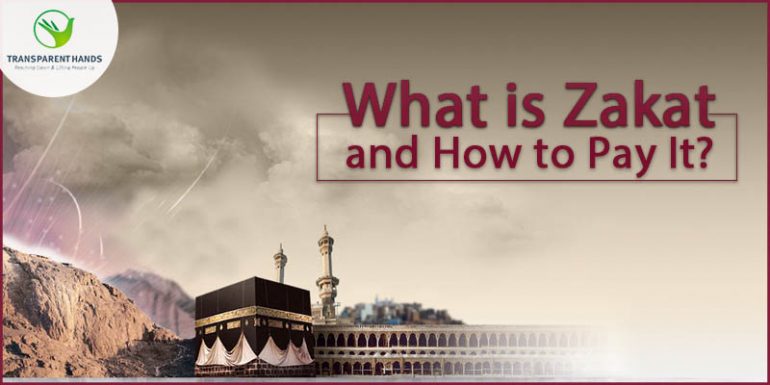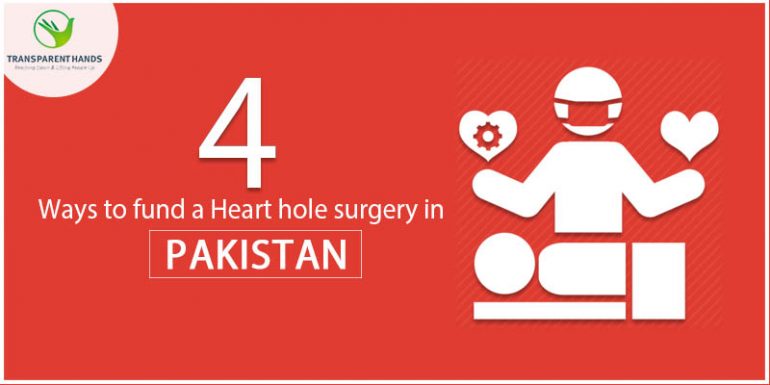What is Zakat and How to Pay It

‘Every morning at sunrise, five-year-old Muhammad Sabir steps out of his house, sagging a garbage bag to his shoulders, filling it with aluminum, plastic, paper scraps or anything he could find to sell. Salvaging trash to survive, he picked up snippets of newspapers and tried to read them. Sabir comes from a family of nomads living in a slum on the outskirts of Lahore, Pakistan’s second largest city.’
It’s not too long ago that Dawn has reported about this boy who is a representative of the prevailing crisis of our society, i.e poverty. Well, the boy Sabir had never attended school .His community live in flimsy tents with no electricity, running water or toilets, they were routinely harassed by the local development authorities and forced to relocate because of illegal encroachment. Sabir works and contributes to the family income instead of going to school, much like the rest of the children in the community. Sabir and his family aren’t the only ones suffering.
-> 4 Ways to Fund a Heart Hole Surgery in Pakistan

There are millions of children, women, orphans suffering due to our heartless and uncaring attitude and we don’t bother to notice. Poverty is defined as being hungry, naked and homeless but the poverty of being unwanted, unloved and uncared for is the greatest and dreadful poverty of all.
What’s the point of our prayers if we don’t care for the needy, the lost, the ones in sickness, the hungry and fail to show compassion towards them? Closeness to the Almighty cannot be found in noise, restlessness, and chaos that is prevailing in our society in the form of human grief, pain, and hunger. To be able to offer soulful prayers we need silence, order, and peace at heart and this is where Islamic teachings and values come into the play.
It is the responsibility of every Muslim to meet his own needs in a balanced way, so that he does not spend all his wealth on personal matters, but answers his duty to share with others the blessings of Allah, bestowed upon him and gives a part of his wealth for the help and assistance of the poor and needy. As Allah’s Messenger said: “O Adam’s son, spend your wealth. It is good for you. Do not block it. That is bad for you; spreading wealth according to need cannot be reproached. Spend first on your family and dependents. The raised hand is better than the lowered hand.”
What is Zakat?
Zakat is not just a fundamental pillar of Islam it is also a revolutionary concept with the potential to ease the suffering of millions around the world. For the orphans, widows, and people struck by tragedies, it strikes the difference between life and death because your Zakat either can save a life or denial of it can compel a needy to be in a miserable state. Zakat can be given to any legally poor or needy individual. Paying Zakat is an act of worship that cleans away impurities from our provision and ensures excess wealth is distributed among those in need. Zakat is an obligation upon any Muslim who has reached puberty, is of sound mind, and owns the minimum amount of net worth (Nisab) for one year.
There are two types of Zakat. Zakat al-Mal is paid on accumulated wealth over a year. So it’s not based on earnings like income tax. Instead, the amount to be paid is based on whatever amount of wealth a person has in their possession. This would usually entail savings, gold and silver jewelry, stocks, cash, etc. Zakat al Fitr is a special charitable donation given before Eid al-Fitr prayers. It is equal to the price of one meal, which is given on behalf of every member of the family.
There is profound wisdom in these two types of mandatory charity. Zakat al-Mal is paid by the wealthy to the poor and needy but Zakat al Fitr as paid by all, both rich and poor. Because of this, even the poor earn reward for giving in charity, and they also have a chance to help those who are even more in need.
How to Pay Zakat:
Zakat is due on an yearly basis when a morally-responsible Muslim possesses the minimal Zakatable-amount (Nisab) beyond his debts and immediate expenses, and a complete lunar year passes over it. In calculating one’s Zakat one calculates all his Zakatable assets together.
“Zakatable assets” include Cash – whether in currency form or in the bank, Gold, and Silver, Money lent out, Trade goods, Stocks, and Agricultural produce. Immediate expenses, investments, rental income, business merchandise and profits, shares, and bonds must be taken into account when determining the Zakat amount. There are two ways to determine Nisab:
- Gold:
The Nisab by the gold standard is 3 ounces of gold (87.48 grams) or its cash equivalent. The price will vary with the current market value of gold.
- Silver:
The Nisab by the silver standard is 21 ounces of silver (612.36 grams) or its equivalent in cash. The price will vary with the current market value of silver.
After a full lunar year passes from the date you become an owner of Nisab, Zakat is then due upon your net wealth. If you cannot remember the exact date, an estimated date can be used.
Muslim Aid has made the entire process of calculating Zakat extremely simple and straight forward. Their newly designed and updated tool does all the calculations for you. All you have to do is enter a few numbers and the calculator factors in the rest. With so many variables involved in determining how much Zakat is owed per individual, there is a tendency to unintentionally overlook something or add something needlessly. The Zakat Calculator from Muslim Aid eliminates these frustrations altogether and shows you exactly what you owe this year. The Zakat calculator can calculate amounts in US Dollars, GBP, and Euros or any other currency as currency can be switched on the donation page.
Conclusion:
We should be mindful of the sentiments of the needy, whose feelings should not be hurt. Islam’s call to its followers to spend in the cause of Allah and for charity is famous and well-known. Similarly, the Islamic campaign against miserliness, greed, and narrow-mindedness are as clear as the day: “A giver of charity is near to Allah, near to humans, near to paradise, and far from hell. While a miser, is far from Allah, far from humans, far from paradise, and near to hell. An uneducated giver of charity is liked more by Allah than a miserly worshipper.” (Tirmizi)
In today’s world we are so restless and have no peace, it is because we have forgotten that we belong to each other. We have forgotten that at times of need it’s our responsibility to stand by our communities. We have forgotten to be compassionate and express love for humanity and brotherhood through charity.
Let us more and more insist on rising Zakat of kindness, of understanding and of peace. The truth is no one in this world has ever become poor by giving. Let us touch the dying, the poor, the lonely, and isolated and the unwanted according to the grace we have received and let us not be ashamed or slow to give Zakat because someone out there needs this contribution badly.










Leave a Reply